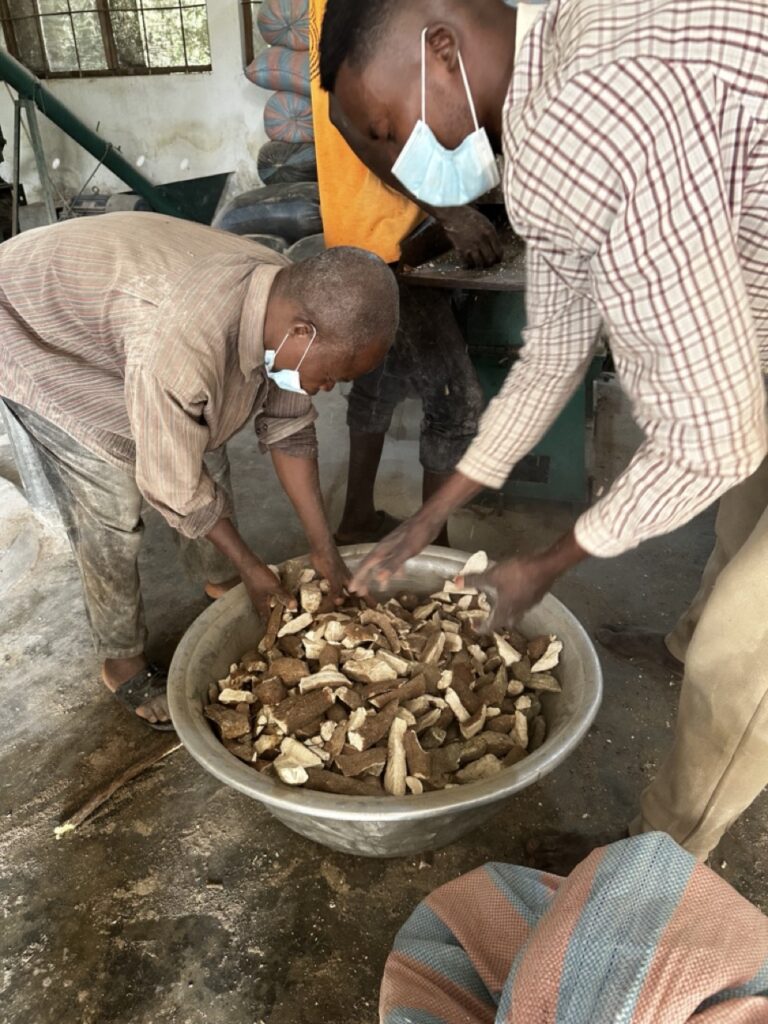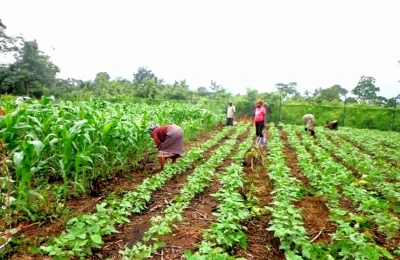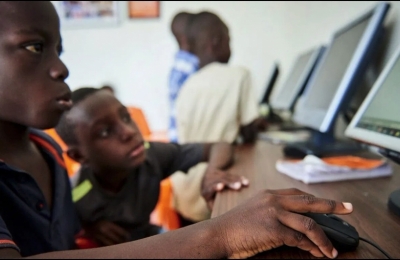Our Projects and Causes
Agriculture Waste to Animal Feed
The Waste-to-Feed initiative is a pioneering programme aimed at addressing two critical issues in rural farming communities across Ghana: livestock nutrition and waste management. By transforming agricultural by-products and organic waste into high-quality feed, this initiative enhances livestock nutrition and considerably reduces the amount of waste that would otherwise contribute to environmental degradation.
Farmers benefit from the initiative by gaining access to sustainable and cost-effective feed alternatives, thereby boosting their livestock productivity and overall farm yields. This comprehensive approach enhances food security for local communities and aids farmers’ economic empowerment, enabling them to invest further in their operations and improve their livelihoods.
Furthermore, the Waste-to-Feed initiative promotes environmental sustainability by recycling waste materials, thereby minimising pollution and fostering a circular economy. This initiative has generated a positive ripple effect throughout the region’s agricultural landscape, encouraging collaboration among farmers, the government, and non-governmental organisations. With its emphasis on enhancing nutrition, reducing waste, and advocating sustainable practices, the Waste-to-Feed initiative stands as a symbol of innovation and hope for rural communities in Ghana, contributing to developing a more resilient agricultural sector for the future. For collaboration and support, email info@shapelives.org
Poultry And Livestock Enhancement Program
Agriculture, particularly poultry and livestock farming, is vital to our economy, ensuring food security and livelihoods for millions. Yet, farmers encounter significant challenges that impact their productivity and the well-being of their animals. This initiative aims to address these issues by providing extensive support and resources, empowering farmers to sustainably enhance the health and productivity of their livestock.
Programme Objectives:
- Enhance animal health and welfare by offering expert training and resources.
- Increase the productivity and yield of poultry and livestock operations.
- Ensure farmers have access to premium feeds, supplements, and veterinary services.
- Develop lasting partnerships with farmers to promote ongoing support and success.


Sustainable Agriculture Agriculture training for smallholder farmers
The Sustainable Agriculture training program for smallholder farmers aims to equip rural women with the essential skills necessary for organic staple food farming. This training encompasses methods for enhanced household food storage and preservation, innovative vegetable cultivation techniques using sacks and plastic waste containers, and cooking methods that preserve nutritional value, among other topics.
The project takes a holistic approach to enhance food security, nutrition, and sustainable agriculture for rural women in their communities, addressing both short-term and long-term needs. It is anticipated that the program will effectively and sustainably increase agricultural production, improve food supply chains, reduce food losses and waste, and ensure that all rural women and children suffering from hunger and malnutrition have access to nutritious food throughout the year.

Brighter Future For Children And Youth Through Ict Training
Thousands of vulnerable children, youth, and young adults in Ghana have never used a computer, and many have not received basic training or education in ICT (Information and Communication Technology) skills. Computer literacy is essential for success in our increasingly technological world. Unfortunately, poverty limits access to computers and training opportunities for these children, youth, and young parents in Ghana.
The project “Brighter Future for Children and Youth through ICT Training” aims to provide free, hands-on computer training to underserved children aged 6 to 17 years old. This initiative not only enhances their skills but also engages them in positive activities, helping to deter their involvement in social vices.
Additionally, the project offers training to unemployed youth and school dropouts, equipping them with the knowledge and skills necessary to further their education and secure job opportunities for future careers.

Improving Nutrition With Orange-fleshed Sweet Potato
We collaborate with farmers and schools to cultivate nutritional crops, particularly Orange-Fleshed Sweet Potato (OFSP), within local communities. This nutritious variety of sweet potato is known for its vibrant color and exceptional health benefits, making it an excellent choice for domestic consumption. The cultivation of OFSP not only enhances the nutritional value of the diets of school-aged children but also fosters community engagement and agricultural resilience.
Orange-Fleshed Sweet Potatoes are rich in essential vitamins, particularly Vitamin A, which is crucial for maintaining healthy vision, immune function, and skin health. Additionally, they contain important minerals such as potassium and dietary fiber, which contribute to digestive health and can help reduce the risk of chronic diseases like diabetes and heart disease. This versatile crop can be prepared in various ways, including baking, steaming, or frying, and can easily be integrated into local cuisine.
By promoting the cultivation and consumption of Orange-Fleshed Sweet Potatoes, we aim to contribute significantly to food security. Not only does this support the health of individual families, but it also empowers local farmers and strengthens the agricultural economy. Through our initiatives, we strive to create sustainable solutions that enhance nutrition and well-being in our communities.

